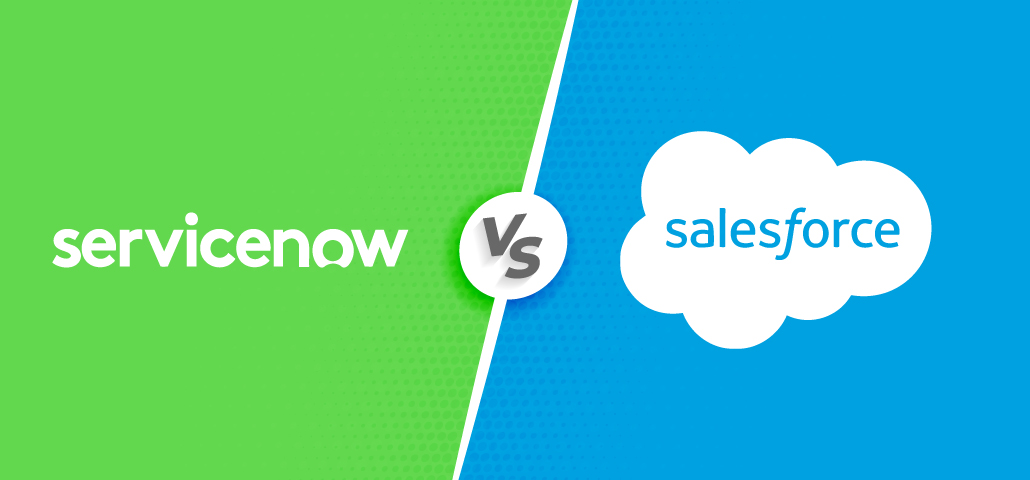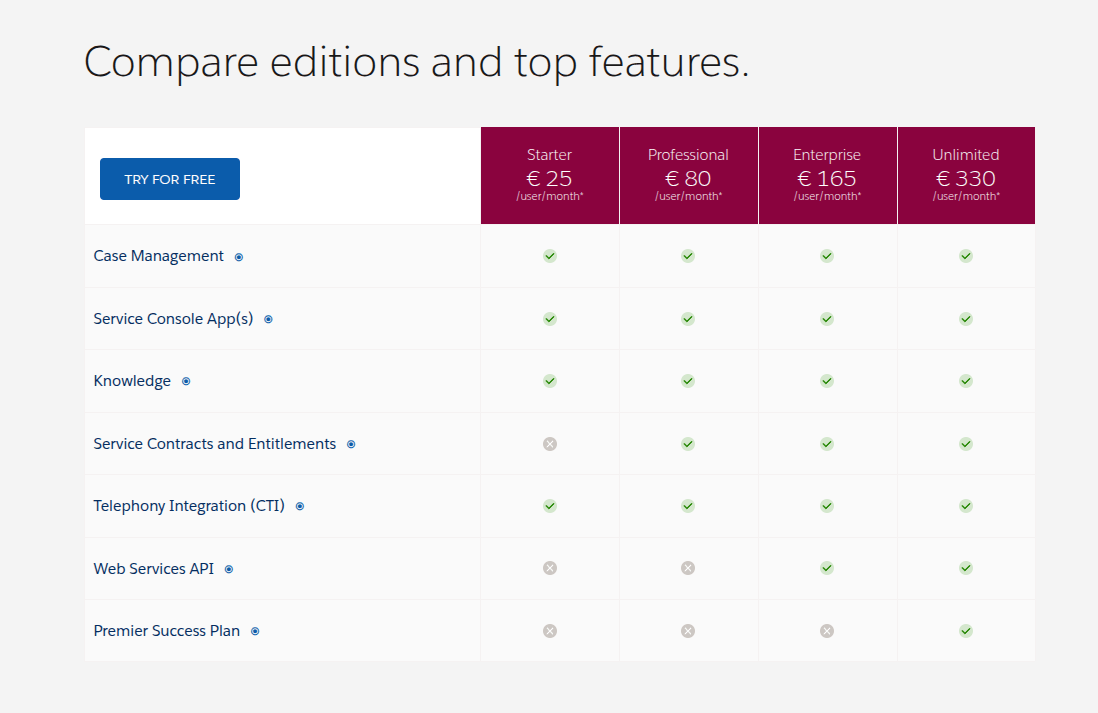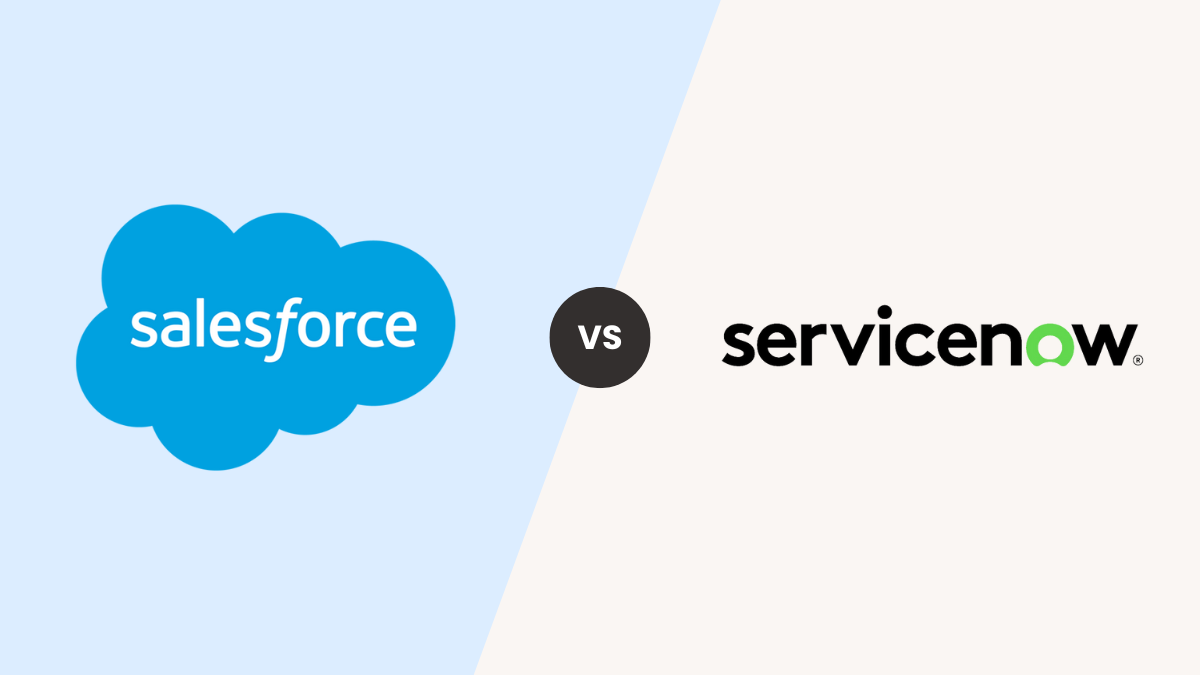Servicenow Vs Salesforce Service Cloud
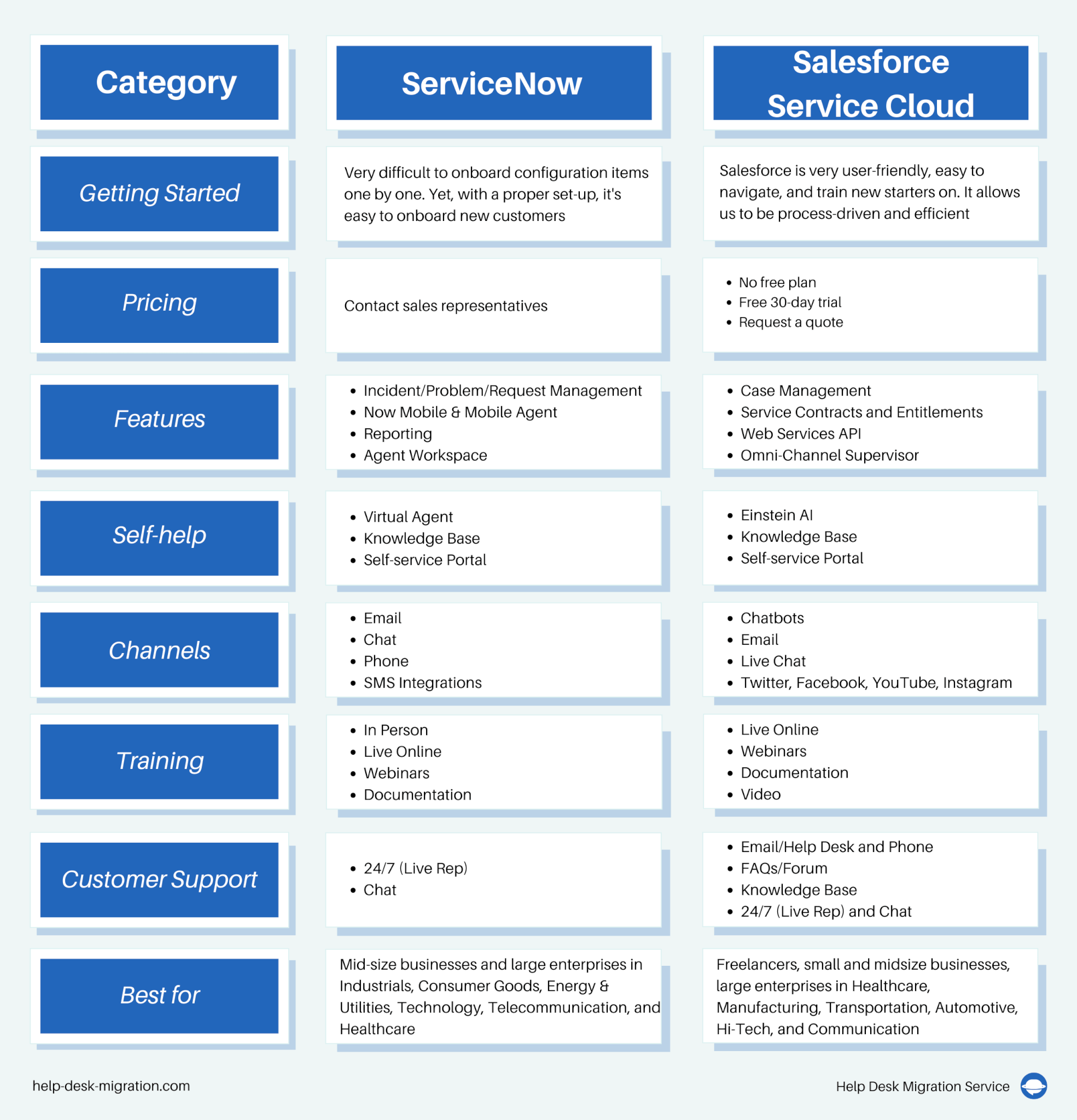
In the ever-evolving landscape of customer relationship management (CRM), ServiceNow and Salesforce Service Cloud stand as two dominant forces, constantly vying for market share and client allegiance. These platforms offer comprehensive solutions for managing customer service interactions, streamlining workflows, and enhancing customer satisfaction. The competition between them is fierce, driving innovation and shaping the future of customer service technology.
The core of this ongoing rivalry lies in the battle to provide businesses with the most effective tools to manage customer interactions and support operations. Both platforms offer robust features, but their approaches differ significantly. Understanding these differences is crucial for businesses seeking to select the platform that best aligns with their specific needs and strategic goals.
Key Features and Functionalities
Salesforce Service Cloud, a product of Salesforce, is deeply embedded in a broader CRM ecosystem. Its strengths lie in its comprehensive suite of features, including case management, knowledge base, self-service portals, and AI-powered insights through Einstein. These features enable businesses to provide personalized and efficient customer service across multiple channels.
ServiceNow, originally known for its IT service management (ITSM) platform, has expanded its capabilities to encompass customer service management (CSM). ServiceNow's approach is characterized by its focus on workflow automation and process optimization. This makes it a strong contender for organizations with complex service processes that span across multiple departments.
Differentiation and Target Audience
Salesforce Service Cloud is often favored by businesses seeking a CRM solution tightly integrated with sales and marketing functionalities. Its extensive app marketplace and established ecosystem make it a versatile choice for a wide range of industries. The platform caters well to organizations that prioritize comprehensive CRM capabilities and a broad range of pre-built integrations.
ServiceNow, on the other hand, appeals to organizations that require a highly customizable platform with strong workflow automation capabilities. Its emphasis on process optimization and its ability to integrate with other enterprise systems make it a compelling option for businesses with complex, cross-departmental service processes. It's particularly strong in industries where IT and customer service are closely intertwined.
"We see companies prioritizing solutions that streamline workflows and deliver personalized customer experiences," says a recent report by Gartner on the CRM market.This highlights the growing importance of both efficiency and personalization in customer service strategies.
Market Share and Adoption
Both Salesforce and ServiceNow hold significant market share in the CRM and CSM markets, respectively. While specific figures fluctuate, both companies consistently rank among the top providers in industry reports. This competition fuels innovation and benefits customers by providing them with more choices and enhanced features.
The adoption rates of each platform often depend on the specific needs and priorities of individual organizations. Factors such as the size of the company, the complexity of its service processes, and its existing technology infrastructure all play a role in the decision-making process. Ultimately, successful implementations require careful planning and a deep understanding of the organization's goals.
Future Trends and Developments
The future of customer service technology will likely see increased emphasis on artificial intelligence (AI), automation, and personalized experiences. Both Salesforce and ServiceNow are investing heavily in these areas. They aim to empower businesses to deliver more efficient and effective customer service.
Expect to see further advancements in areas such as chatbots, predictive analytics, and proactive service capabilities. These technologies will enable businesses to anticipate customer needs, resolve issues more quickly, and provide a more seamless and personalized customer experience. The ongoing competition between these two platforms will undoubtedly drive these innovations forward.
In conclusion, the rivalry between ServiceNow and Salesforce Service Cloud is a defining force in the CRM landscape. It is shaping the future of customer service technology. Businesses must carefully evaluate their specific needs and priorities to determine which platform best aligns with their goals. The ultimate winner is the customer, who benefits from improved service and enhanced experiences.



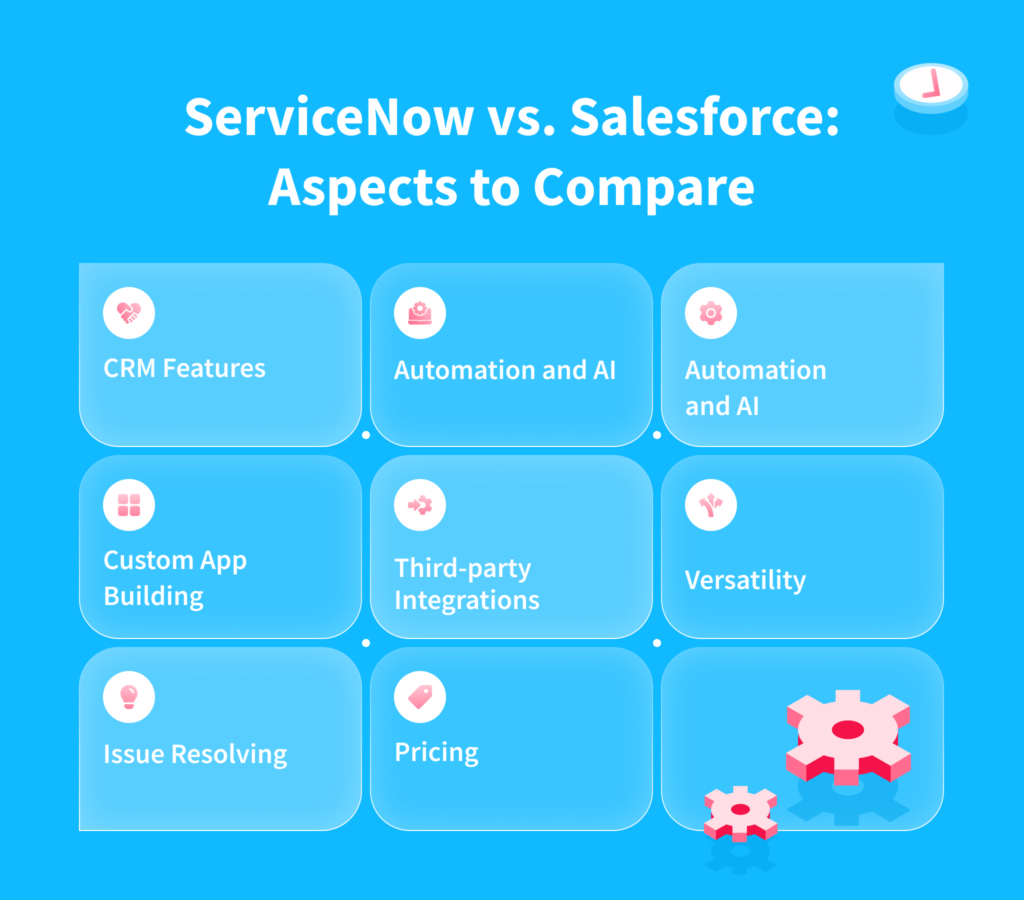
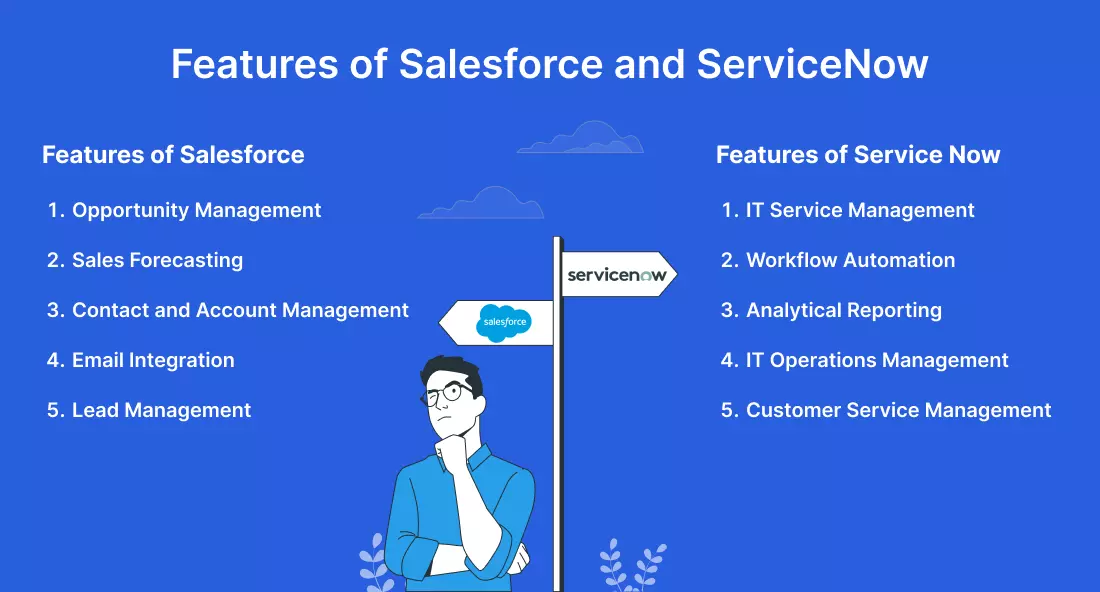


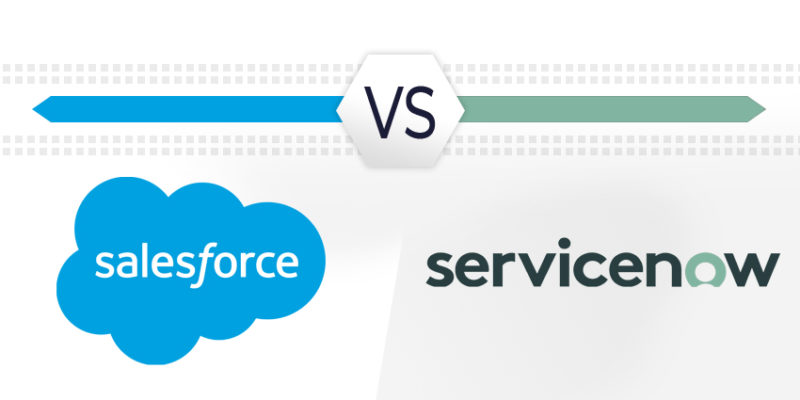

![Servicenow Vs Salesforce Service Cloud Salesforce vs. ServiceNow: Which Platform is Right for You? [2025]](https://cyntexa.com/wp-content/uploads/2024/03/salesforce-vs-servicenow-comprehensive-comparison.webp)
![Servicenow Vs Salesforce Service Cloud Salesforce vs. ServiceNow: Which is best? [2025]](https://www.ksolves.com/wp-content/uploads/Salesforce-Vs-ServiceNow-6-Major-Differences-Between-The-Two-2048x1138.jpg)


